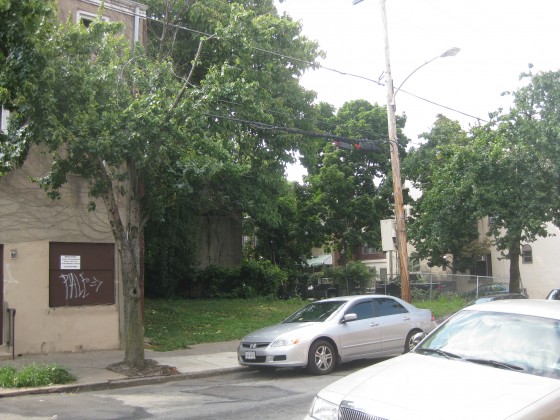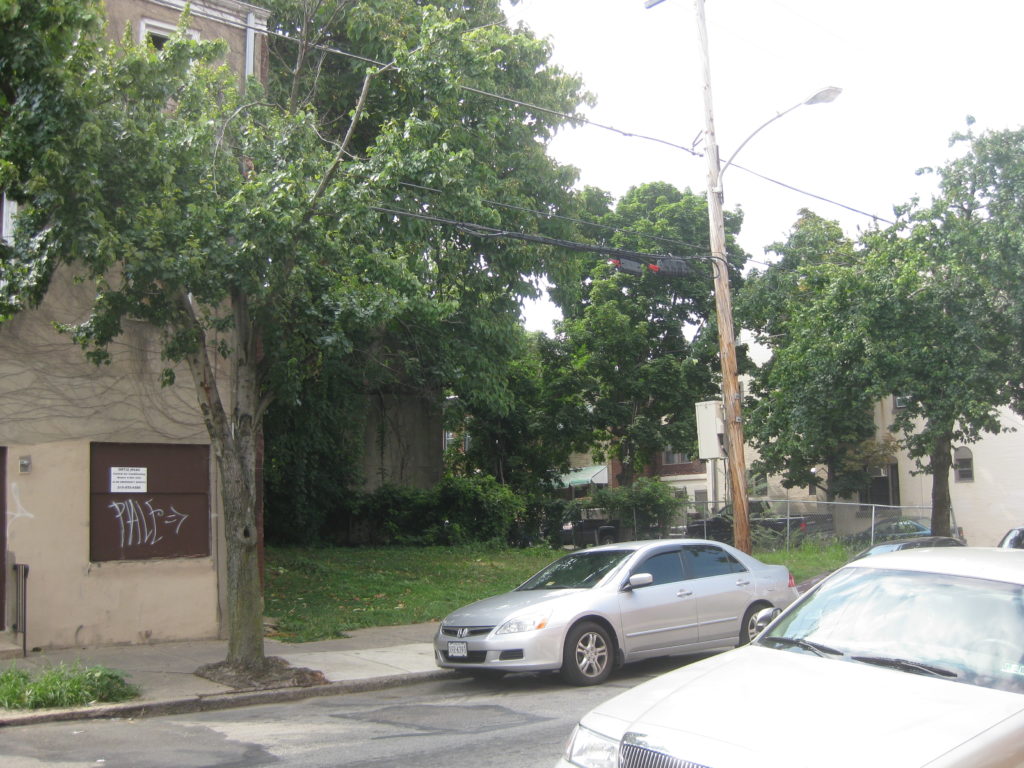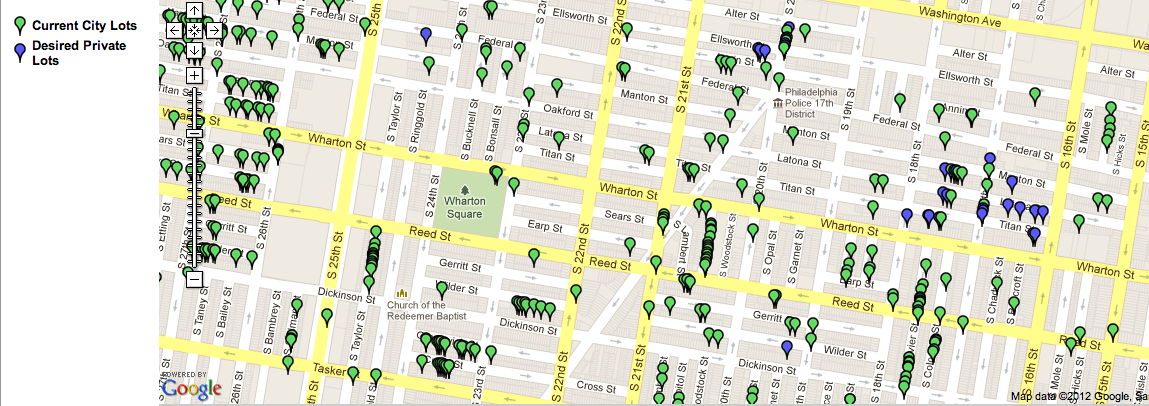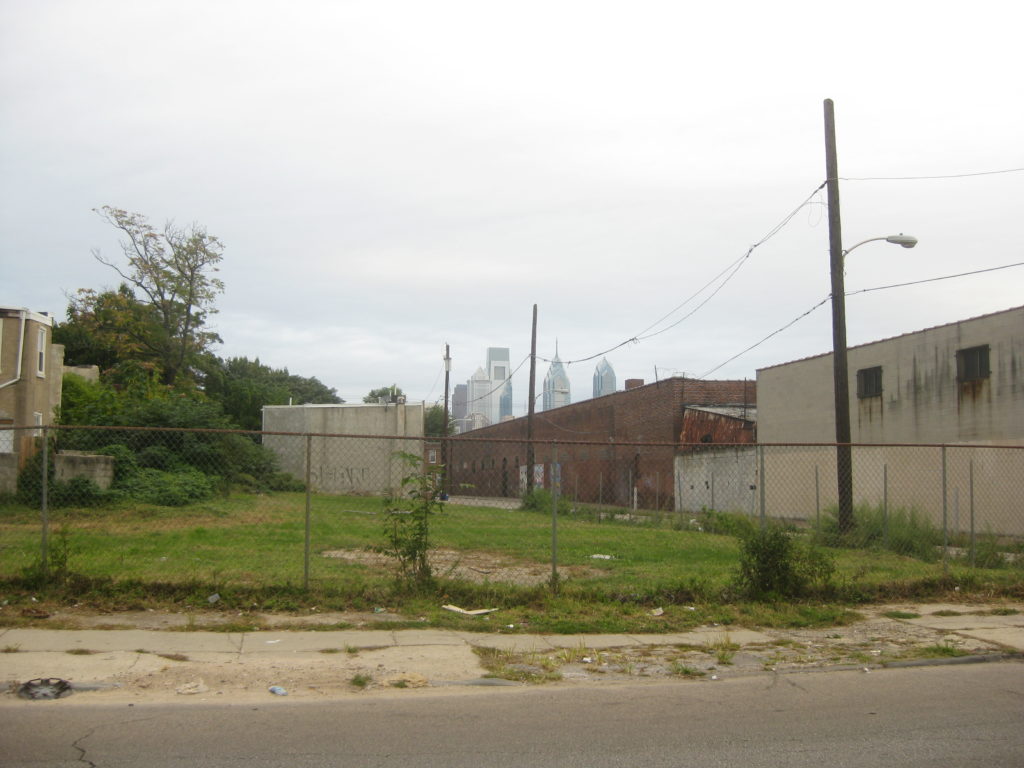A week ago, we told you about a plan from the Philadelphia Redevelopment Authority to condemn and seize thirty-one privately owned properties via eminent domain in the Point Breeze neighborhood. Reaction to that story has resulted in 749 signatures (and counting) on an online petition in opposition to this plan. Today, both the Inquirer and Daily News have picked up this story, and some new facts have emerged on Curbed Philly.
The first interesting tidbit from today’s coverage is a reversal by Councilman Kenyatta Johnson and the PRA from comments made only two weeks ago. In a Next American City story, Chris Sample, Johnson’s Chief of Staff, indicated that only 40% of the condemned properties would become affordable housing, while 60% would be resold to private developers planning to build market rate homes. Either the plan has changed in a mere two weeks or Sample was blowing smoke- a Fact Sheet released last night by Johnson’s office gives the impression that all of these parcels will become affordable housing.
So now that we know that these lots will become affordable housing, what’s the plan? When will they be built? What will they look like? Who will build them? How will they be paid for? Well, the $1.7M to buy the lots will come from NTI money. An RFP will go out to spend $2M to build the first round of homes, which will come from the Neighborhood Stabilization Program (NSP is a federal program). Future funding will come in dribs and drabs from local and (hopefully but we can’t be sure until it comes) federal sources.
Want to guess how many affordable housing units two-million dollars gets you? By our calculations, looking at the Community Ventures project at 17th & Federal, the answer is six. Maybe seven. So we’re looking at guaranteed funding on less than twenty percent of the parcels being condemned, and crossing our fingers that funding comes through to build another thirty plus homes in the following years the next decade our lifetimes. What that means for the remaining parcels is that they will remain vacant and unkempt, possibly for years, because the budget doesn’t allow for proper maintenance of 10,000+ vacant lots the City owns.
So… Remind us again, why does it make sense for the City to buy private lots to redevelop when it already owns over three hundred lots in the neighborhood? If some of these lots are tax delinquent, why can’t they go through the sheriff’s sale process, like others (are supposed to, in theory)? Why does it need to aggregate new lots for RFP when it already owns tracts of land that have been blighted for decades, waiting for development? How does it make sense to spend $1.7M to buy more lots when that money could be used to build (only, but still) five additional affordable housing units on parcels the City already owns?
Johnson’s office and the PRA aren’t interested in answering these questions. They’re only saying, per the Inquirer, that they’re seeking “to preserve affordability in an appreciating neighborhood.” They’re claiming that they need to condemn lots that are close to one another so that they can be developed more easily. But we ask, what’s wrong with the 1300 block of South Capitol Street, where the PRA already owns ten parcels in a row? When they’re looking to condemn a single property on the 1600 block of Manton St. and not 1316, 1320, and 1344 S. Capitol St. (which would result in owning an entire block’s worth of lots), their argument loses all credibility.
As much as the PRA and Johnson’s office insist that this is simply business as usual, and their singular goal in this process is to maintain affordability in a gentrifying neighborhood, the pieces just don’t fit together. With hundreds of vacant lots in its possession in Point Breeze, the City already has all the land it needs and then some to achieve this goal.
And you know what, it’s a great goal! Neighborhoods are better for having residents from different backgrounds and different socioeconomic classes. We’re simply suggesting that this goal is not diametrically opposed to the goal of private developers, and that both goals can be achieved in Point Breeze. Hopefully, the City will drop this crazy plan and divert all available funds to developing affordable housing on land it already owns, and private developers will be allowed to keep doing what they’re doing, without fear of having their land snatched out from under them.
Full disclosure: Our parent company, OCF Realty, participates in market-rate development in Point Breeze.




